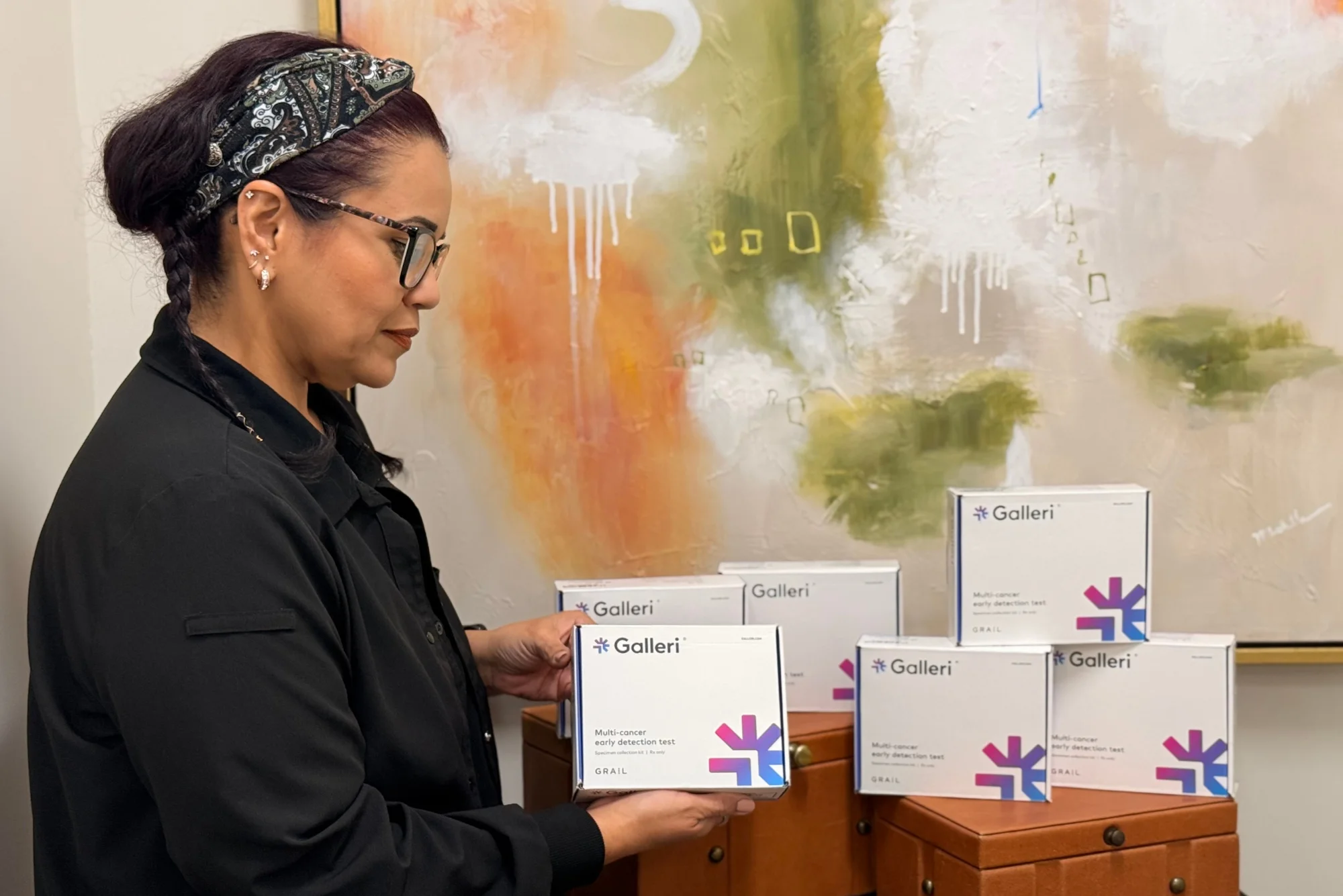
There’s no denying that this stretch of time is often considered the most treacherous when it comes to nutrition, as many of us are apt to add pounds around the holidays. The key, however, isn’t to avoid all holiday indulgences; it’s to manage them.
How? Remind yourself that nutrition—and the role it plays in your health—is about eating well most of the time, not every single second. When dining, do it with reason, with purpose, and with some sense of control.
Nutrition and diet are among the most important lifestyle factors when it comes to our overall health because of their influence on such areas as cardiovascular health, mental health, digestive health, as well as on the risk of developing diabetes, inflammation, and other chronic conditions.
That’s why we consider it so vital to your wellness—and why we want to help you manage it. We’ll break down some of your most common food questions to help you live your heathiest and happiest life.
Q: I’m tempted all the time by processed foods that taste so good but are not the best to eat. What’s the best way to handle temptation?
Ultra-processed foods contain little, if any, whole foods and often contain large amounts of added sugar and salt. Examples include fatty, sweet, savory, or salty packaged snacks; ice creams and frozen desserts; carbonated soft drinks; energy and sports drinks; canned, packaged, and instant soups; packaged meat, fish, vegetables, and breads; breakfast cereals and bars; sweetened juices; margarines and spreads. (“What doctors wish patients knew about ultraprocessed foods”)(AMA)
Knowing that processed foods are linked to worse health outcomes, whether it’s inflammation, weight gain, or other chronic diseases, is a great first step. Avoiding those foods and ingredients that aren’t the best for your body, especially when they’re so prevalent, is a lot tougher.
Because every person is different in terms of both physical and mental health, there isn’t necessarily a solution to taming temptation that fits all. The methods we find work well, however, come in two varieties.
One, create the environment you want. If you crave chips while watching television, try eliminating them from your household, so it won’t be an option. Stock your refrigerator and pantry with healthier options. Crunchy veggies with hummus make a good substitute for chips. A bowl of berries can satisfy sweet cravings.
Two, create some new Pavlovian responses. When we crave something and immediately grab it, we’re teaching our brain to react that way. But what if you did a little rewiring?
“If your brain is setting off an alarm that the chips sound good, it’s a good time to go on a 5-minute walk outside. Take a reset and see if you’re still having that craving when you return,” says Dr. Timothy Nobles, physician at Griffin Concierge Medical. “The key is to keep yourself occupied.”
Add a behavior to override the temptation, like listening to music, doing a few pushups, or drinking two glasses of water.
Q: Does a perfect diet exist?
Maybe, in general terms. But probably not when it comes down to every detail. That’s because all our bodies are different, meaning that two people can react differently even if they eat the same foods and follow the same diet.
The bottom line, Dr. Nobles says, is that we tend to be over-consumers (we eat a lot) but are under-nourished (yet not enough of the healthy foods).
“We’re packing in calories, but those calories aren’t packing in nutrients that help keep away inflammation and ward off an environment that promotes chronic disease,” he says.
To eat as nutritiously as possible, means:
- Staying away from overly processed foods (like ones with extra sugars or many artificial ingredients).
- Focusing on whole foods that have lean protein, healthy fats, and complex carbohydrates, making sure to have plenty of fiber and fruits and vegetables for vitamin and mineral balance.
- Staying hydrated (with water, not gingerbread lattes).
“I think that any equation you look at, protein is the cherry on top – it has to be prioritized,” says Dr. Nobles.
That means lean meats like chicken, as well as fish and beans. Being protein-deficient is linked to lower muscle mass and slower metabolism, both of which are linked to worse health outcomes. Don’t lean too heavily on any one food or food group, though.
“Too much of one thing is not the best thing. The body is very complex. If you eat the same thing every time, you’re missing out on other health benefits,” Dr. Nobles explains.
Q: Is fasting a good option?
It can be, as it’s been shown to be linked to weight loss, lower insulin levels, increased growth hormone, and enhanced cognitive performance (and protection against cognitive decline).
“It triggers a process where the body helps remove waste products by breaking them down,” Dr. Nobles says. “With fasting, we’ve seen decreased markers of inflammation in the body.”
Intermittent fasting can come in a variety of forms, but it generally refers to the practice of eating only during a certain window of time (say within an 8- to 10-hour period, rather than spreading your meals and snacks out from the time you wake to the time you go to bed). Talk to your Griffin physician about how to safely practice fasting if you are considering it.
Q: I’m considering a GLP-1 medication for weight loss. Do I need to change my diet?
We find that these medications do usually impact our patients to some extent. You could experience some GI issues, as well as some psychological changes as your relationship with food changes.
Because of the effect on the GI system, we tend to recommend prioritizing protein and fiber intake, focusing on non-starchy veggies and leafy greens.
We also want to monitor vitamins and minerals (which you may need to supplement) and track muscle mass, since that can decrease with these medications. (“Ozempic can lead to muscle mass loss: Study”)(The Hill)
“We’ll also monitor labs and make sure that taking the medication is a net positive,” Dr. Nobles says.
Talk to your Griffin physician to determine if these weight-loss medications are right for you.
Q: Is a health coach or nutritionist worth it?
“Think about the greatest athletes and performers,” says Dr. Nobles. “They almost always had a mentor or a coach. It helps with collaboration, motivation, discipline, and self-confidence.”
And ultimately, he says, it’s about personalization, because a coach can help you with food choices and plans based on your lifestyle, your work schedule, your personality, your roadblocks and blind spots, and your preferences.
Plus, a coach can help you with:
- Customizing an eating plan based on your genetics, your existing conditions, and any genetic markers you may have. Contact us if you’d like to add genomics testing to your care.
- Determining whether (or what kind of) an app or tech may help you. You can also consider whether you want to try a continuous glucose monitor that can provide real-time data.
- Teaching you about food. For example, deciphering food labels can be a tricky business, as food marketers can make some products seem healthier than they are (i.e. “heart healthy” may be labeled as such because it has some fiber, but it could also be loaded with sugar, which is far from heart healthy).
At Griffin Concierge Medical, we will talk to you about nutrition and diet as a regular and important part of wellness, but we can also offer advanced personalization with our coaching nutrition programs and access to a licensed dietitian. Contact your Patient Care Coordinator or call us at 813-350-9090 to schedule a wellness visit with your Griffin physician.
“Our relationships with our patients are based on trust and respect, and we are here to support you and hold you accountable,” says Dr. Nobles. “With that, you tend to see behavioral change, which can lead to better outcomes.”




